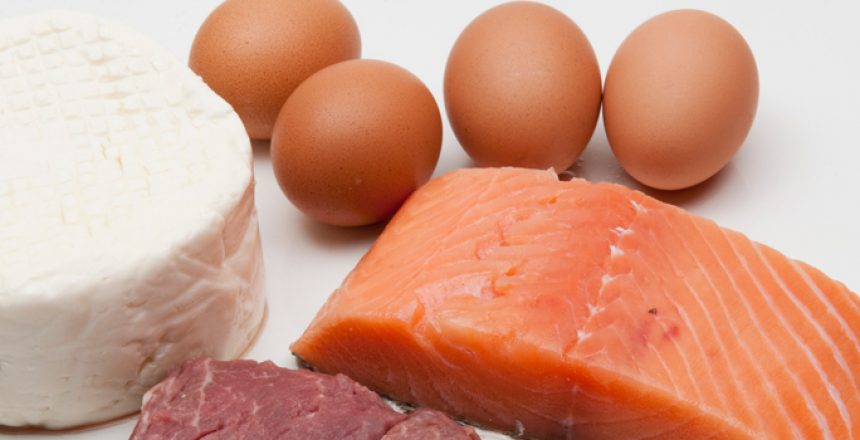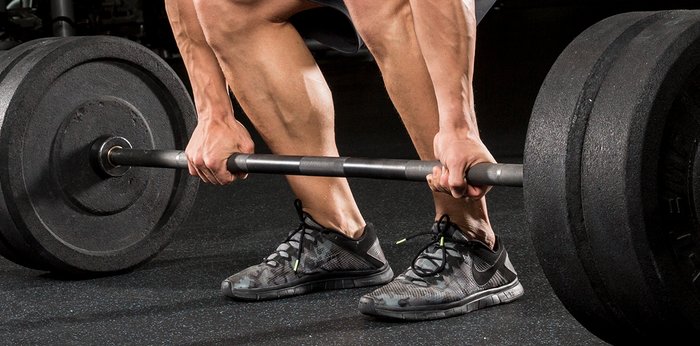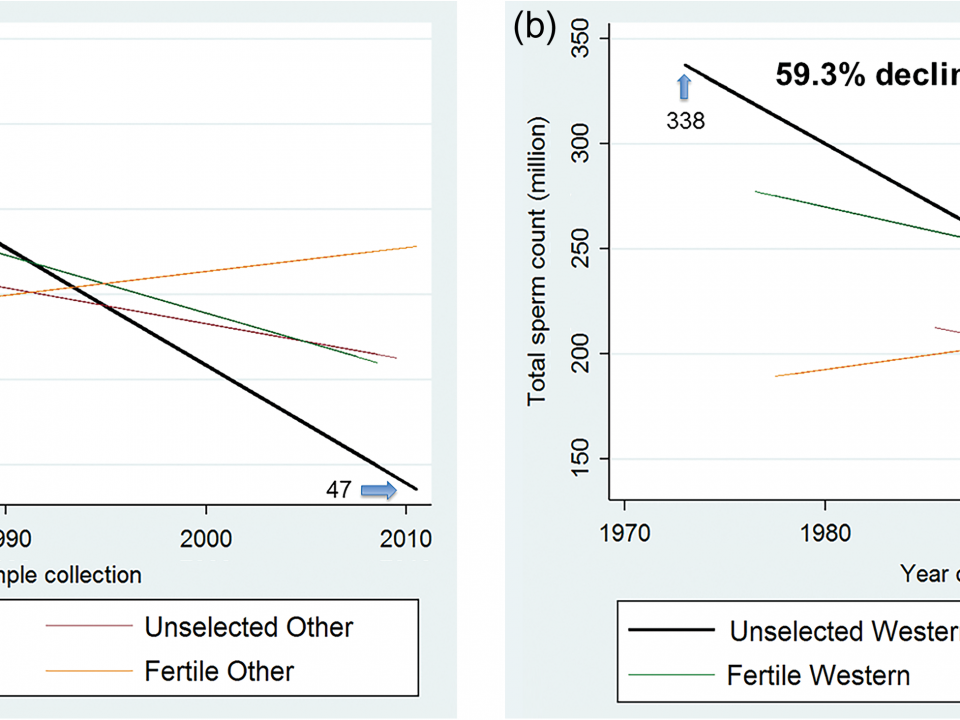Many people have vague health complaints, that they just don’t feel well or are tired all the time. (I’ve been there.) Regular doctors often can’t find anything grossly abnormal about them, so there’s nothing to treat. Then these people end up in alternative medicine (I’ve been there too) and see these doctors for a long time and spend lots of money, often without result, when a simple dietary change could vastly improve their condition. That’s because protein fights fatigue.
Alternative medicine
Alternative medicine has its good points. Half of it is very effective, but the problem is figuring out which half. In any case, it’s been my experience that “integrative medicine” doctors and other alternative practitioners are willing to stay on their patient’s case and keep trying, for which they deserve kudos, while in regular medicine, doctors often ascribe patients’ untreatable symptoms to the pateints’ imagination.
Who goes to alternative doctors, though? Lots of them are people who are already acquainted with alternative health practices and already practice some of them themselves.
Vegetarians, for example.
Even if not complete vegetarians, they may believe, as large numbers of people do believe, that meat, eggs, and cheese are unhealthy and to be minimized. Meat, eggs, and cheese (and other dairy products, and fish) contain large amounts of complete protein and are, in my view, necessary for good health. While vegetarians could have a reasonably good diet if they include eggs and dairy, I believe it’s next to impossible for a vegan to eat well.
Protein and fatigue
So, apparently large numbers of people have vague symptoms that cause them to seek medical help. While the symptoms can be vague, they can be severe, such as unrelenting fatigue.
I also see what most people eat, and it’s not healthy. Bagels or breakfast cereal are not healthy breakfast options. Pizza isn’t a healthy dinner.
But even those attuned to their health often end up having green smoothies and a banana for breakfast. Those aren’t healthy either; one of the main ways they’re not healthy is because they provide next to no protein, and no animal protein at all.
In my view, it’s no wonder that people who eat like that are fatigued and don’t feel well.
They probably have low levels of glutathione; the body requires amino acids from protein to make it.
Indeed, whey protein increases glutathione in young adults with cystic fibrosis. Inadequate glutathione levels may be involved in the pathogenesis of chronic fatigue syndrome.
Muscles require protein; muscles fractionally break down and build up, and that’s strongly attuned to fasting and eating, so even if someone is not trying to build muscle, he or she needs adequate protein just to prevent muscle loss. Without adequate dietary protein, a person risks slipping into a chronic catabolic state, and this is exacerbated by other illness. Among the illnesses that feature a chronic catabolic state are “HIV infection, cancer, major injuries, sepsis, Crohn’s disease, ulcerative colitis, chronic fatigue syndrome, and to some extent in overtrained athletes.” [My emphasis.]
Protein helps overtrained athletes return to health
Elite athletes train hard and train often, and that can lead to overtraining, a condition in which the athletes become fatigued, unable to train at their usual intensity, and subject to upper respiratory infections.
In overtrained athletes, blood levels of amino acids are abnormal. Provision of ~30 grams of extra protein daily returned these athletes to health and to their usual training schedule.
“Analysis of these results provided contrasting plasma amino acid patterns: (a) a normal pattern in those without lasting fatigue; (b) marked but temporary changes in those with acute fatigue; (c) a persistent decrease in plasma amino acids, mainly glutamine, in those with chronic fatigue and infection, for which an inadequate protein intake appeared to be a factor.”
If extra protein can help elite athletes get back to health, could it help ordinary people with chronic fatigue? While the ultimate causes of chronic fatigue and overtraining may be different, the two conditions likely have some commonalities, and a chronic catabolic state caused by lack of sufficient dietary protein may be one of them.
A significant number of adults, estimated at 10 to 25%, do not eat the RDA for protein, and in fact, the RDA itself may be set too low.
It’s likely that many people with vaguely defined symptoms such as fatigue might return to health if they increased their dietary protein intake. Even a relatively small additional amount could make a difference. For example, eating eggs instead of cereal for breakfast could make a meaningful difference, or having chicken instead of pasta for dinner. Or adding 25 grams of whey to lunch.
Animal foods are high in the complete protein people need to be healthy and energetic and comprise:
- meat
- eggs
- fish
- cheese and yogurt
If you’re feeling fatigued (or overtrained) enough to seek medical attention, and you’re eating a diet low in protein, the answer may be more protein.


![Smash Chronic Fatigue: A Concise, Science-Based Guide to Help Your Body Heal, and Banish Fatigue Forever by [Mangan, P. D.]](https://images-na.ssl-images-amazon.com/images/I/51y1eWKrTpL.jpg)








22 Comments
Good article – makes a lot of good points. I hope people battling health problems will read it.
With that said — one side comment — I’ve found that for myself, I need to alternate periods of eating a lot of protein with one five-day stretch a month when I eat NO protein. See Valter Longo’s work on the Fasting Mimicking Diet. His approach is something new, based on recent lab studies with rats.
What they have found is that the week (or, five solid days) of fasting from protein triggers the body to cannibalize our senescent cells.
Then after the week of no protein ends, our body replaces them with brand new stem cells.
Learning about this, and alternating periods of fasting and feasting, has made a huge difference to me in battling an autoimmune condition.
I mention this because for years, I was shoving in nutrients every day, lots of protein, healthy fats, supplements, you’d think I’d be getting better, but I was getting sicker. Tried going low carb but it didn’t do much for me. It was taking some long breaks for low-protein or no-protein fasting that got things back on a healing track for me. Now I fast for five days a month — usually just a juice fast, supplemented by some avocados. Each time I do this it’s a major reset for my health.
Interesting article, and good catch on the glutathione/Chronic Fatigue Syndrome link. A couple comments:
1) Chronic Fatigue Syndrome is not chronic fatigue. Just as Parkinson’s is not chronic shakiness, and Alzheimer’s is not chronic forgetfulness.
2) Chronic Fatigue Syndrome patients have no approved medical treatment, and most have tried everything possible to try to get better. This includes a wide variety of diets and supplements. If a high protein diet were significantly beneficial, it would be widely reported by CFS patients. It’s not.
One reviewer of my chronic fatigue book said I was promoting “a fad diet”. Many people won’t even try it. So I dispute that we would already know if it works. It worked for me. Fact is, and this is part of the point of my article, no one is telling them to change, whether regular or alternative docs. Everyone out there is clueless. So they don’t change.
And BTW, it’s called a “syndrome” because they don’t know what causes it and it has many manifestations, so there’s no clear cut line at all between chronic fatigue and CFS.
I agree to PD. Most people are really scared of eating a lot of protein, because they have always seen it on the upper part of the food pyramid, so they have learnt that protein should be eat sparingly, so they would never try it. Older people eat too little or if they eat a lot, most if it is cereals 🙁
I have been there. I was young, I had two small kids and was always exhausted. I had been a vegetarian for 12 years. Had my blood tested, went to an alternative doctor and everything seemed OK. One day I just couldn’t cope with my life. Some days after my husband forced me to eat meat. I started searching about the paleo diet. I stopped running and started lifting weights. Now I eat a lot of meat, fish and eggs (2-3 a day). I feel extremely better. I feel better than 20 years ago. Very few of my friends, even thought they complain about how fatigued they are would dare to change the way they eat. They feel it is unsafe.
PD, I don’t doubt what you write here. But what do you think of this from Examine.com
which arrived in my inbox this morning ?
https://examine.com/nutrition/low-carbing-for-endurance/?utm_source=newsletter&utm_medium=email&utm_campaign=blog-042517
Lots of marathoners are going LCHF, and they do what works. The study only had a 3-week adaptation period too.
Yes, PD just a three week adaption period. Examine.com markets itself as a complete info source on supplements, nutrients etc..But I have noticed they get it wrong on other occasions.. An example : no differentiation between vitamin K and K2. And the report on Iron is out of date.
On twitter, I casually remarked that my book on supplements would be 10x better than the one Examine.com sells for $50 (sic). then immediately up popped “Sol Orwell”, owner of Examine.com – name in quotes because he changed it. He keeps close tabs, also he’s a jerk.
Thanks for that info fill-in PD. I have not subscribed to Examine.com. But have 3 of your books so far.
Great Bill, glad to hear that.
So help a simpleton out here. That report suggests LCHF doesn’t help performance, but does, obviously, help fat burning, if I read it a’right. It suggests classic carboloading helps performance, right?
But we should be skeptical of it, because 3 weeks isn’t enough time for the LCHF subjects’ metabolism to have optimised?
Ignoring that question, it seems to me that carbs function analagous to a performance enhancing drug. You don’t need them (I do 2+ hour intensive workouts fasted with no problem, N=1) but sugar flying around your body will help your performance. (Obviously, at what long-term cost?)
Yeah, I think that’s the “training low” thing at work. Your body gets used to the lack of glucose so when you enter into competition, it utilizes the readily available glucose for immediate effect. From what I think that I understand, I wouldn’t imagine that there would be much long term effect so long as the intensity of the activity was great enough.
PD I just found this article on the UK Conversation about the possible impact of gut bacteria on the choices we make about what we eat. Interesting.
https://theconversation.com/do-you-really-choose-what-you-eat-or-do-your-gut-microbes-decide-for-you-76337
Hi P.D.
I’d like to ask you about cortisol.
Do you know any supplement that helps to lower cortisol?
Thank you.
Off the top of my head, no. But you can lower cortisol by sleeping well, avoiding stress and excess caffeine.
Actually yes, I’d recommend ashwagandha to lower cortisol. I believe there have been some controlled studies supporting this. Raises testosterone too. It’s an adaptogen, one of a family of drugs which essentially combat stress.
Hey P.D.,
Great article! I’d like to chime in with a short story of my own experience.
I was a track/cross country athlete in high school and I also lifted weights because I wanted to be buff. (I knew nothing about calories in/calories out back then, and didn’t realize that I was overtraining and not eating enough protein.)
Anyway, college comes around and I’m constantly exhausted from a lack of sleep and having to adjust to a new place. I stop lifting and don’t continue until after the summer after college.
1 month in I’m still exhausted even though I’ve been sleeping 10-12 hours per day every day and doing compound lifts 3 times a week. I finally decide to start mixing a scoop of whey protein + milk right after my workouts and my exhaustion disappeared after 2-3 days!
This could’ve been a coincidence, but maybe not. I’m not sure to this day…
Thanks for the great article!
Hi PD,
I sent this you an email 2 weeks ago, about these NCIB articles about Acetyl L Carnitine, – both as a supplement as in meat or eggs.
I was hoping that you could cast some light on them as they are beyond my scientific understanding. But so far nothing.
Have you had time to check them out ?
I’mstill enjoying my lamb chops, sausages, scrambled eggs and fish ! But these articles put my mind in a spin when I read them.
https://www.ncbi.nlm.nih.gov/pmc/articles/PMC4018574/
https://www.ncbi.nlm.nih.gov/pmc/articles/PMC3650111/
https://www.ncbi.nlm.nih.gov/pmc/articles/PMC3701945/
Cheers
Bill
Hi Bill – apologies if I didn’t get to your email. The fist paper discusses TMAO, which might better be termed LMAO. The problem with TMAO as a risk marker is that fish contains vastly more of it than meat; a study I read had volunteers eating both fish and meat, TMAO was 40 times higher in fish eaters. And fish is associated with less heart disease. Both of the other papers also indict meat and eggs, foods which humans have eaten for the past million years. The epidemic of heart disease began in the early 20th century, so the idea that meat and eggs and butter became suddenly atherogenic seems, well, off. IMO, vegetable oils, tans fats, and sugar are far more likely dietary causes of heart disease, and these became massively more consumed in the 20th century; add cigarettes, and you’ve got people dropping like flies of heart attacks.
PS: Here’s the paper showing 40 to 60 times higher levels of TMAO with fish than with beef or eggs. Trimethylamine-N-oxide (TMAO) response to animal source foods varies among healthy young men and is influenced by their gut microbiota composition: A randomized controlled trial
Thanks for the reply PD. I will check out your link !
Cheers
My symptoms started at the age of 46. My fingers on my left hand were stiff and were difficult to move. People noticed that my walk was not normal. I was often asked did I hurt. I noticed nothing different about my walk. It was difficult getting up from` a chair and getting out of a car. I was diagnosed a year later and i have to find a better solution and was introduced to try the help of herbal formula. I am now 59 tho and am fully cured from Parkinson’s disease.
contact Total Cure Herbal Foundation on: Totalcureherbalfoundation@ gmailcom i had to use the remedies for 15 weeks usage which really help on my condition.
Ava